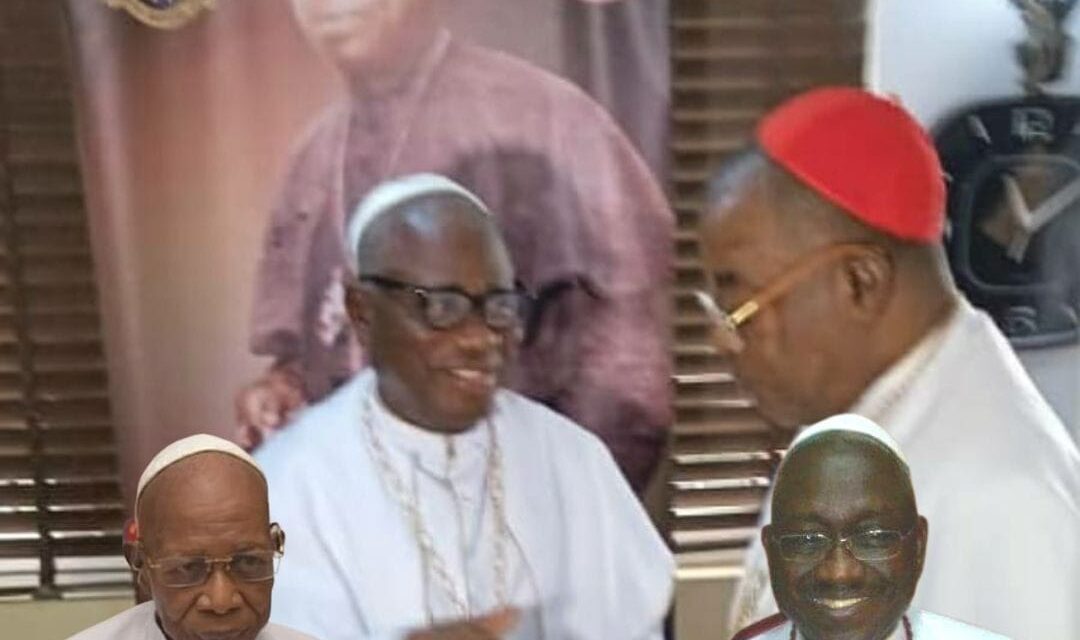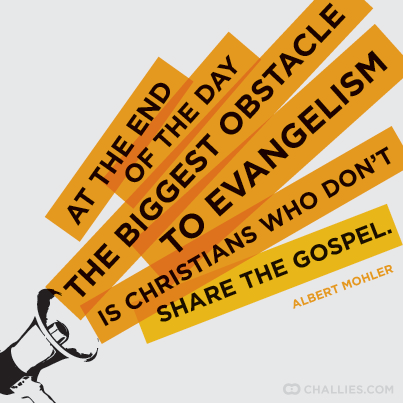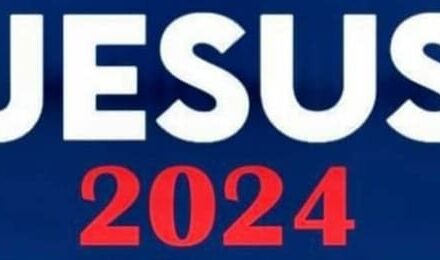In the words of Professor Andrew Walls, African churches bring into focus the period when Western Europe was converted to Christianity.’ [1]Among the excesses of globalisation is the tendency to forget history and jump to conclusions shaped by cultural domination, ‘the outer skin of globalisation.’ Globalization represents overlapping trends that arose from the spread of modernity. The rise of modernity that was followed by secularization broke down the theocratic state and set universalizing values. The global trends of capitalism and the worldwide communications revolution shaped by the proliferation of satellite technology point to the world as one single place with a new economy and cultural domination.[2]
Beyond the theological and ecclesial challenges of globalization to the church,[3] the ministries of unity and oversight (episcope) are to renew and reinforce the unity and koinonia of the whole church.[4] Methodism in our diverse autonomous relationships affirm one another ordained and lay ministries given by God as instruments of His grace for communal, collegial and personal oversight (episcope). In Methodist Church Nigeria,[5] indigenized corporate episcopacy is expressed in personal and communal ways within the church’s life and in recognition of all believers’ fundamental equality and universal fellowship.
Personal and communal episcopacy is missional and promotes ‘healthy globalization’[6] as it is practiced ‘to safeguard, transmit, and restate in every generation the apostolic faith delivered once for all to the saints.’[7] The coming great church will be congregational, presbyteral, and episcopal. The missional fact is that faithfulness to the Apostolic Commission will continue to enhance effective witness of episcopacy, beliefs, and practices (Matt 28:16-20). No church exists for the sake of the church, just as no leader exists for the sake of leadership. Overseas episcopate as a call, a witness, sent out to a worldwide proclamation in word and deed, making disciples, both locally and throughout the world (Acts 1:8). The overseas episcopate points to the definition of a bishop as one who represents Jesus Christ, ‘watches over’ and ‘cares for’ the gospel and the church. Jesus’ figure as ‘pastor and bishop of souls’ explains what should be the ONLY rule of life for the bishop in his or her ministries, home and abroad, to sinners and saints.[8]
Archbishop Sanda Ayoade Ladigbolu, a Prince and a former Nigerian Methodist Archbishop of Ilesa, in his lecture marking the 50th anniversary of the Wesley Group, Methodist Church Nigeria, Agbeni Cathedral, Ibadan, explained that ‘liberal theology is a negation of orthodoxy.’ According to him, a church that submits itself to the leadership of such leaders that sit in judgment on the Bible and its divine origin has not only lost its identity, but they have also lost its doctrinal anchor. Hence they ‘are without a spiritual and moral compass to lead the church.’[9] Distortion of episcopal ministry based on liberal theology points to election as a reward (for a person’s specialization or authoritarianism), a show without any inward content, and external practice without personal spiritual commitment. Tragically, the development of the dominant secular ideology is not without its adverse effects on the life of the Church and Methodism.
Methodist beliefs and practices are essential to early Methodist growth and spirituality. In his 1970 doctoral thesis titled, The Decline of Methodism, Professor Bryan Turner explained that Methodism presupposes a system and method of beliefs. Methodism’s involvement in communal scriptural holiness reaffirms and strengthens its shared beliefs.[10] The decline of Methodist beliefs, practices, and experience has been the root cause of our membership decline. It is essential to state that Methodists’ decline is first the decline of leadership, beliefs, practices, and experiences before the decline of membership. The reflection is that Methodist missional operative theology and spiritual heritage shaped by the teaching of John Wesley’s Twenty-Five Articles of Religion on the nature of God is experiencing steady erosion, hence a loss of Methodist identity, leadership, and theology.
Bishop Richard Wilke’s lamentation about the crisis of identity in the United Methodist Church resonates with the theme of the 2022 Methodist Church Nigeria Conference calling the church to prepare for the Second Coming of Jesus Christ. According to Bishop Wilke, the church’s sickness ‘is more serious than we at first suspected. We are in trouble, you and I and our Methodist Church. We thought we were just drifting like a sailboat on a dreamy day. Instead, we are wasting away like a leukemia victims when the blood transfusions no longer work … Our Wesley-inspired dream and directive was to ‘spread scriptural holiness across the continent.’ Now we are tired, listless, fuelled only by the nostalgia of former days, walking with a drop, eyes on the ground, discouraged, putting our foot ahead of the other like a tired old man who remembers but who can no longer perform.’[11]
The fast growth of the early Methodist societies necessitated a missional means of nurturing the movement. The birth of this missional means called “Conferencing” remains at the heart of Methodist history and tradition. In 1744, John Wesley ‘called together the small group of preachers who formed the core of the movement for a “conference” meeting … to discern “how we should proceed to save our souls and those that heard us.” Their agenda was simple: “1. What to teach, 2. How to teach, and 3. What to do, that is, how to regulate our doctrine, discipline, and practice.”[12] The 1744 conference became an annual affair, a gathering of all the preachers (lay and clergy) who were “in connexion” with John Wesley. What became the center of the Methodist organisation, the “annual conference,” ‘the intuitive genius of Wesley’s organisational mind’ has developed into a biennial conference in the Methodist Church Nigeria, making collective decisions on behalf of the whole church (Acts 15). Some different Conference committees meet in between the biennial conferences. Conferencing as a means of grace ‘allows the Holy Spirit to speak through the diversity of voices who are part of the collective,’ the Connexion. Wesley, in 1784 ‘made provision for the continuance as a corporate body after his death, that is, the ‘Yearly Conference of the People called Methodists.’
Methodist Church Nigeria 48th/13th Biennial Conference met between Wednesday, 10th to Monday, 15th August 2022 at Abuja, the Federal Capital Territory of Nigeria. The Conference has come and gone, but its memories and landmark collective decisions remain a means of recovering Wesleyan identity and priority of evangelism shaped by the two pillars of the Bible and the Person and Work of Jesus Christ.[13]
In 2022, Methodism, Nigeria’s premier church, celebrated its 180 years of existence and 60 years of autonomy from British Methodism. As an indigenous autonomous church, the 180 years celebration offers Nigerian Methodism a renewing missional opportunity to decolonise. There is the opportunity to respond to the pressure of secularisation worldview and leadership declining the church globally. Nigeria Methodism at 180, the oldest church in Nigeria, can indigenise itself in various cultures and leadership contexts consistent with the Christian belief in the incarnation, mission and evangelism.
Constitutionally, Abuja 2022, being the last Conference under the prelateship of His Eminence Dr. Samuel Chukwuemeka Uche, the election of his successor, His Eminence Rev Dr Oliver Ali Aba, a former Methodist Archbishop of Benue, has been described as a prayerful process of renewal and missional transition. The Conference was to be hosted by the Archdiocese of Benue at Otukpo. However, due to the security problem, especially in Benue state and other parts of Northern Nigeria, the venue was shifted to Abuja, the Federal Capital Territory of Nigeria. The theme of the Conference was “Prepare for the Second Coming of Jesus Christ.”
One central matter from the Ministerial and Lay Sessions of the Conference that formed the significant discussion during the Representative Session was the need for renewal and awakening within Methodist Church Nigeria to spread the Scriptural holiness across the world as our parish. With over 100 newly ordained priests, the Conference agreed to take mission and evangelism to the North East, North West of Nigeria, and overseas. The enthusiasm with which the Conference members raised funds for the North East mission was very encouraging. At the end of the Conference, over 20 new dioceses within Nigeria and two overseas episcopates were created to advance Bible-based, Spirit-filled pastoral ministry across the world as our parish. Creating new dioceses offers a means and renewal of episcopal visionary leadership to encourage effective discipleship and mission. Episcopacy as the missional expression and form of Methodist Church Nigeria leadership and ministry[14] with its ‘three planes’ is first and foremost indigenous[15] and owes much to theology than history – the pastoral ministry in the local community; connexion oversight linking the local and universal church over time; and the link between the local and universal church over time.[16]
The overseas episcopate is not a new missional leadership theology, expression and practice. At the end of the eighteenth century, ‘the Church of England began to consecrate bishops for service overseas.’ According to Davie, a combination of colonisation and missionary activity meant that by the end of the eighteenth century, there were a growing number of overseas churches in places as far apart as America, Australia, and India that were part of the Church of England.’ Bede’s identification of one great weakness of the British church in the fifth century that it ‘never preached the Faith to the Saxons or Angles who dwelt with them in Britain’ is beneficial in this context. Davies explained, ‘ we do not know whether this was because of fear or animosity towards the foreign invaders. We know that this was a failure to obey the great commission (Matt 28:16-20), and it seems likely that this failure may well have contributed to the final downfall of Roman-British society in England during the second half of the sixth century.’[17] The reflection is that, ‘if the British church, led by its Bishops, had been willing to evangelise the Saxons and this had resulted in their conversion, this could have opened up the possibility of some form of peaceful co-existence between Britons and Saxons.’ The evidence from Bede and other sources is that ‘more worthy preachers of truth’ were primarily bishops who brought people to the Christian faith.
A series of missionary bishops from the churches of continental Europe lead the evangelisation of the Saxon kingdoms in England. The missionary activity of a British missionary (and later bishop) called Patrick in the fifth century, shaped by the Celtic Christian tradition, originated in Christianity, which developed in Ireland. Kent was evangelised by Augustine, who was sent from Rome by Pope Gregory the Great in 595 and consecrated bishop in Arles. Augustine was appointed as archbishop by Pope Gregory over the whole of Britain in 597. Despite the opposition that Augustine faced, he was able to evangelise the Saxons. Essex was evangelised by Mellitus, sent from Rome, and consecrated bishop by Augustine. Northumbria was evangelised by Paulinus, sent from Rome and consecrated bishop by Augustine’s successor, Justus, and by Aidan, a bishop consecrated in Iona and sent out from there. Aidan was succeeded as Bishop of Northumbria by Finan, also from Iona. East Anglia was evangelised by Felix, a bishop from Burgundy, and Cedd, a bishop in the Celtic tradition, who was consecrated by Finan. Wessex was evangelised by Birinius, who was sent from Rome by Pope Honorius and consecrated bishop in Genoa. Mercia was evangelised by four presbyters in the Celtic tradition, Cedd, Adda, Betti, and Diuma, a Scot who was subsequently consecrated bishop by Finan. Sussex was evangelised by Wilfrid, who came from Northumbria, a monk in the Celtic tradition.
In his account of the ministry of Paulinus in Northumbria, Bede provides an excellent example of what this episcopal missionary activity involved in practice and belief. Bede explained that Pauline was determined ‘to bring the nation to which he was sent the knowledge of the Christian truth, and to fulfil the Apostle’s saying, ‘to espouse her to one husband, that he might present her as a chaste virgin to Christ.’[18]
The overseas episcopate, like every disciple, is a call to personal holiness, just as Peter said, “As he who called you is holy, be holy yourselves in all your conduct, since it is written, “You must be holy for I am holy” (1Pet 1:16). The overseas episcopate as a renewal of episcopacy for ‘the world as our parish’ is about following and representing Jesus Christ in whose kingdom there are certain rules and standards which are not generally accepted in the world today. Some standards mark believers out from other people: ‘You must be holy, for I am holy,’ and without holiness, episcopacy becomes dysfunctional, distorted, and corrupted. The overseas episcopate is a call back to the future just as ‘the Church today is back in the situation it was in the early centuries,’[19] if not worse. Faced with a society marked by an idolatrous, paganistic world view ‘and a lax view of sexual ethics,’ the church today is under serious decline. The good tiding is that the same God that used means, including overseas episcopacy, for the early church to triumph is still at work.
The overseas episcopate as a renewal of
episcopacy for the world as our parish, among other things, is to proclaim the
Scriptures as the clear structure of theological authority, guide the teaching
of the church against heretic contaminations by caring for those in need, and
keeping the evangelical eternal view. The overseas episcopate is about a renewing
missional agenda and the fulfilment of the Great Commission by the bishops
today and in the future. Confronted with the decline of Christianity, the
overseas episcopate is about the reordering of the episcopate involving
‘non-territorial missionary bishops’ and ‘non-diocesan episcopal roles to speak
into particular issues.’[20] The overseas episcopate,
as a focus of broader unity among all Christians and all people, is about
missional leadership in worship, evangelism, teaching, and pastoral care in
anticipation of the Second Coming of Jesus Christ. Come, Lord, Jesus Christ.
[1] The Expansion of Christianity: An interview with Andrew Walls in The Christian Century, August, 2-9, 2000, pp. 792-799
[2] Angela Travis, The Guardian, 4th August 1999.
[3] Jenkins, Philip, The Next Christendom: The Coming of Global Christianity (Oxford, Oxford University Press, 2007), pp. 75-80
[4] http://www.anglican-methodist.org.uk/embr-covenant-ch5-141209.pdf
[5] Familusi, M.M. Methodist in Nigeria (1842-1992), (Ibadan: NPS Educational, 1992), pp. 5-25.
[6] Friedman, Thomas, The Lexus, and the Olive Tree: Understanding Globalization (New York: Picador, 2012), pp. 236, 320-329,
[7] A Response to ‘The Outline of a Reunion Scheme for the Church of England and the Evangelical Free Churches of England.’ Quoted in ‘Statements and Reports of the Methodist Church on Faith and Order,’ Vol. 2, 1984 – 2000, Part 2, p. 379
[8] More, Peter (ed), Bishops: But What Kind?, Reflections on Episcopacy collected and Edited (London: SPCK, 1982), pp. 51-64
[9] Ladigbolu, Ayo, ‘Methodist Church in Identity Crisis within the context of Politics, Security, and Injustice in Contemporary Nigeria,’ in Opeke, RosalineO, Familusi, Olumuyiwa, O, Berekiah, Olugbenro, O (eds), The Heart of the Act: Church Politics and Social Transformation, A Festschrift in honour of His Grace, Most Rev. Michael Kehinde Stephen (Ibadan: Ibadan University Press, 2018), pp. 39-48
[10] http://dejiokegbile.com/on-track-to-die-out-the-mother-church-of-world-methodism-learning-from-its-offspring/
[11] Wilke, Richard B, And Are We Yet Alive? The Future of the United Methodist Church (Nashville, Tennessee: Abingdon Press, 1986), p. 2-8, 25-55
[12] Lambrecht, Thomas, The Role of Conferences in the New Methodism, https://wesleyancovenant.org/2020/05/22/the-role-of-conferences-in-the-new-methodism/
[13] Ladigbolu, ‘Methodist Church in Identity Crisis, pp. 39-48
[14] Okegbile, Deji, Missional Leadership for Repositioning Nigerian Methodism (Lagos: Alet Inspirationz, 2019), pp. 3-13
[15] Idowu, Bolaji, Towards an Indigenous Church (London: Oxford University Press, 1965), pp. 2-13
[16] Davie Martin, Bishops Past, Present, and Future (Great Britain: GileadBooksPublishing, 2022), pp. 236-237
[17] Davie, Bishops Past, Present, and Future, p. 161
[18] Davie, Bishops Past, Present, and Future, p. 164
[19] Davie, Bishops Past, Present, and Future, p. 761 – 765
[20] Davie, Bishops Past, Present, and Future, p. 765











Highly informative. Deji, well done for the in-depth analysis of overseas’ episcopacy and its significance for today’s gospel mission.
Thanks sir. It is our collaborative global mission. Please, pray along sir.